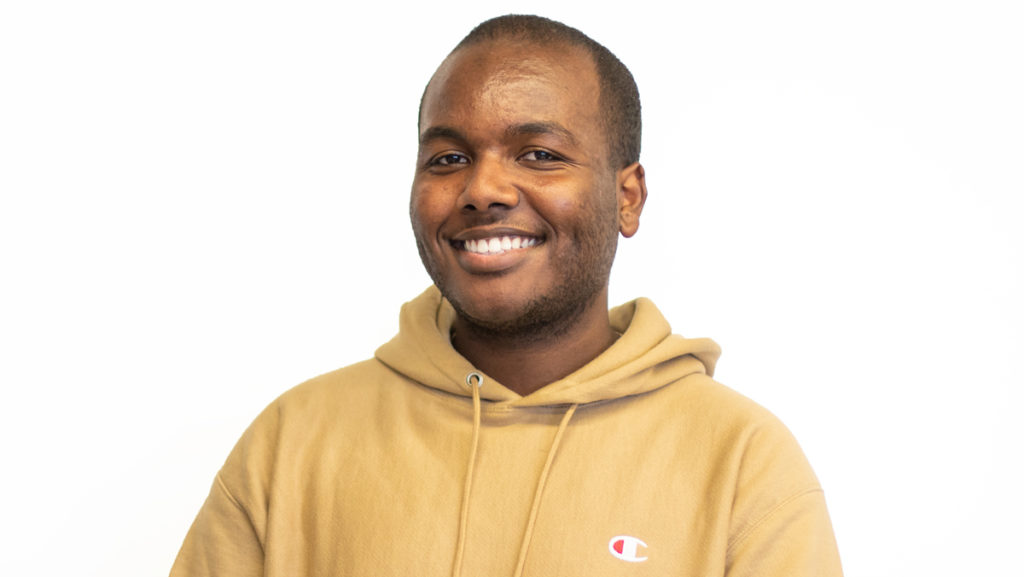Necro. Niger. Negro. Nigga. Black. The word “nigger” has never had a positive connotation. Although the spelling of the word has evolved, the feeling of the whip is still the same.
It is believed that the N-word is derived from the Latin word “niger,” meaning black. Niger became the noun “negro” in English, Spanish and Portuguese. In the last two, it means “the color black.” In English, it means “black person.”
If you look at early modern French, niger became negre and, later, negress: a word to describe a black woman. Some believe that “nigger” is a phonetic spelling of the Southern white mispronunciation of Negro or that it comes from the Greek prefix “necro,” meaning corpse or death.
No matter its origins, the N-word is never appropriate for a white person to say. It is not appropriate while in the privacy of your home, while teaching students in a classroom, while reading a novel or while singing along to a rap song. It is especially not appropriate for a professor to recount a personal experience and recite the words “nigger-lover,” even if he was the one called the epithet.
Recently, Emory College professor Paul Zwier did just this. Zwier, a white professor, was criticized for using the N-word in an educational context. In the wake of the controversy, he used the N-word more than once to describe his own experiences, such as being the subject of racial epithets from white racists. Despite his intention, he is still in the wrong.
Zwier allegedly used the racial slur as an example again when a student of color visited his office hours to discuss his use of the word in the classroom. He allegedly did this despite being warned.
One of the main reasons that racism and racist slurs exist to this day is the refusal of people to change once their racist behavior is brought to their attention.
This situation is the definition of white privilege. White individuals have the luxury of choosing what language is appropriate and what is not. Black individuals do not have this luxury. Historically, our voices have been continuously disregarded.
White privilege is not being affected by racial slurs in the same way people of color are. That is why the word “cracker” will never have the same implications as the N-word. White privilege is claiming ignorance of the N-word’s inappropriate nature because when I, as a black individual, am subjected to this word, I am not only subjected to the history of the word but also its racial implications that are still prevalent today. Black people cannot afford to be ignorant. As numerous news stories on police brutality have shown, ignorance at the hands of racist individuals can cost black people their lives.
With the implications of slavery still lasting today, black bodies being used for profit and black men and women getting murdered by those sworn to protect them, the use of the N-word will never be appropriate when said by a white person — even if they are a professor in an academic setting.
As a child, I used to believe that it was acceptable for my teachers to say the word when reading a novel that had the word in it. But as I began to educate myself, I began to recognize the history of the word and that some of my ancestors would rather face death than be subjected to the captivity that would degrade them to being merely a “nigger.” I realized that the word should never be spoken by those whose ancestors were the perpetrators of this violence.
The usage of the N-word is especially problematic in the classroom because of the normalization of the word. Sometimes professors will not even ask students if they feel comfortable with the use of the word in an academic setting. For some, there is immense trauma attached to even hearing the word, and rightfully so. If the word is not appropriate in a casual setting, then it is especially not appropriate in an academic setting.
In response to my opinion of the word, I often hear, “If the N-word is such a bad word, why do black people say it to each other?”
If anyone has the right to assume the word, it is black people. Black people have been subjected to years of disenfranchisement and dehumanization, so they have the right to reclaim the language that was meant to defeat and degrade them. Do not mistake this reclamation as an invitation to use the word. If you are not black, the word is not for you. It never will be.
Think about the trauma that these words carry. Post-traumatic slave syndrome is very much real. Trauma within black communities has been passed on from generation to generation; so when I hear the N-word, I think of my father, his father’s father, his father’s wife and his father’s enslavement. I ask myself, “How would they feel to know that their pain, their accomplishments, their love, their humanity, their fear and their trauma has been minimized by a word that’s origins mean ‘death’?”
When you have been described as three-fifths of a human, then you can say the N-word. But until then, it should never come out of your mouth.




